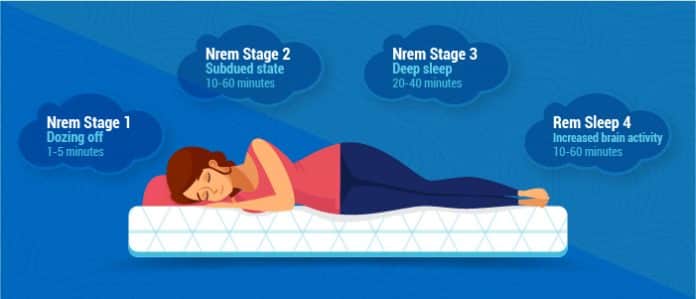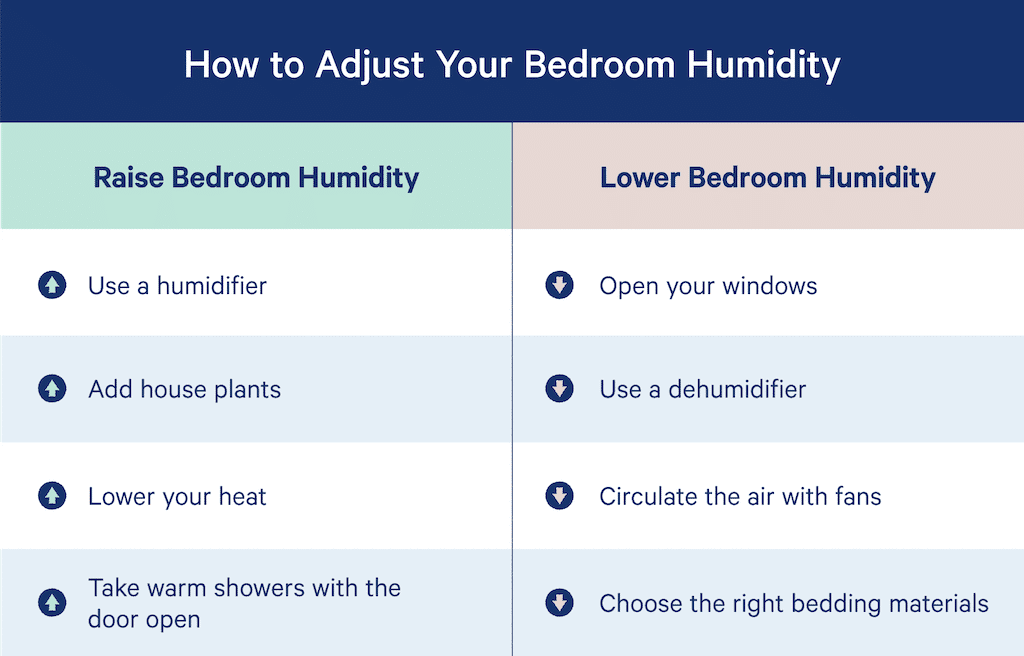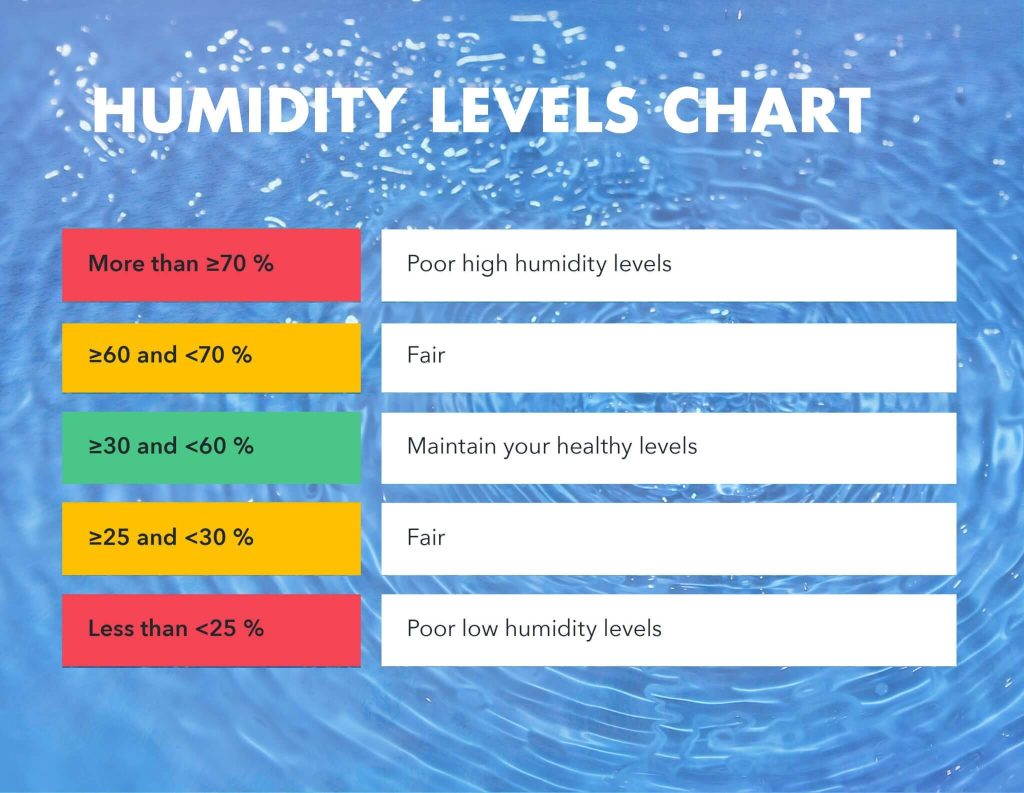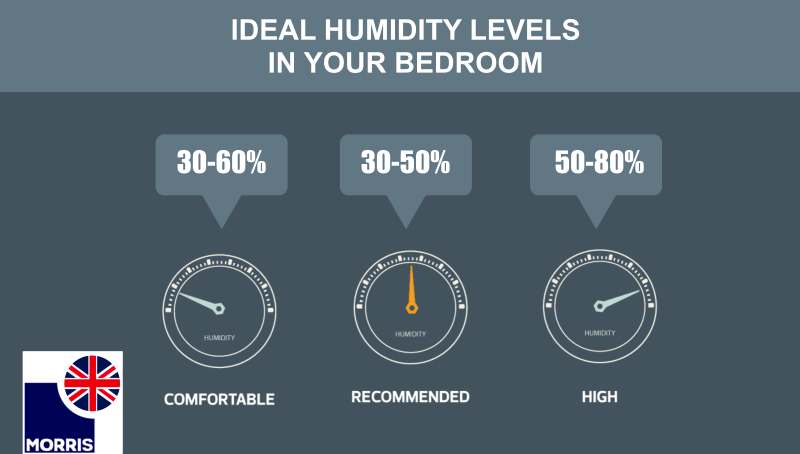Have you ever wondered what the perfect humidity level is for a good night’s sleep? Well, look no further!
This article will explore the ideal humidity level and why it is essential for overall sleep quality.
By understanding the impact of humidity on our sleep, you can create a comfortable and conducive environment for a restful night.
So, let’s dive into the world of sleep and discover the secrets to optimizing your humidity levels for a peaceful slumber. Get ready for a transformed sleep experience!
Review contents
Importance of Humidity for Quality Sleep
Getting a good night’s sleep is essential for overall health and well-being. While many factors can affect the quality of your sleep, one often overlooked factor is humidity.
The level of humidity in your environment can have a significant impact on the quality of your sleep.
In this article, we will explore the effects of humidity on sleep quality, the significance of maintaining optimal humidity levels, and the impact of poor humidity on sleep.
Effects of Humidity on Sleep Quality
Humidity is vital in regulating your body temperature and promoting comfortable sleep. When the humidity is too high or too low, it can disrupt your sleep patterns and leave you restless and uncomfortable throughout the night.
Significance of Maintaining Optimal Humidity Levels
Maintaining optimal humidity levels in your bedroom is crucial for quality sleep. When the humidity is within the ideal range, it helps to keep your nasal passages and throat moist, preventing dryness and irritation.
This, in turn, reduces the likelihood of snoring, coughing, and other respiratory issues that can disturb your sleep.
Impact of Poor Humidity on Sleep
Both high and low humidity can negatively impact your sleep. When the humidity is too high, it can cause physical discomfort, such as sweating, stickiness, and difficulty breathing.
On the other hand, low humidity can lead to skin and respiratory irritation, dryness, and an increased risk of infections. These factors can disrupt your sleep patterns and make you tired and groggy the next day.
Factors Influencing Humidity Levels
Several factors can influence the humidity levels in your environment. Understanding these factors is essential for maintaining optimal humidity for quality sleep.
Climate and Location
The climate and location where you live significantly determine the humidity levels in your environment. Areas with high humidity, such as coastal regions, may require additional measures to control humidity levels indoors. On the other hand, dry climates may require a humidifier to add moisture to the air.
Seasonal Variations
Humidity levels can vary greatly depending on the season. In the summer, humidity tends to be higher due to increased moisture in the air. Conversely, winter often brings drier air, leading to lower humidity levels. Adjusting your living environment accordingly can help maintain optimal humidity levels for quality sleep throughout the year.
Indoor vs. Outdoor Environment
The humidity levels indoors may differ from those outdoors, especially if your home has proper insulation. Indoor environments tend to have less natural airflow, which can lead to higher humidity levels. Monitoring and regulating the humidity indoors is crucial to ensure a comfortable sleep environment.
House Size and Insulation
The size of your house and the insulation it provides can impact humidity levels. Larger homes with more rooms may require additional measures to regulate humidity throughout the space. Additionally, well-insulated homes that minimize air leakage may trap moisture indoors, leading to higher humidity levels. Proper airflow and ventilation strategies can help maintain optimal humidity levels for quality sleep.
Presence of Humidifier or Dehumidifier
A humidifier or dehumidifier in your bedroom can significantly influence humidity levels. A humidifier adds moisture to the air, raising humidity levels, while a dehumidifier removes excess moisture, lowering humidity levels.
Depending on your specific needs, using one of these devices can help achieve the ideal humidity for quality sleep.
Recommended Humidity Levels for Sleeping
Maintaining proper humidity levels in your bedroom is essential for quality sleep. The following guidelines provide a general idea of the recommended humidity levels for sleeping.
General Guidelines
The ideal humidity level for sleeping typically falls between 40% to 60%. This range allows for optimal comfort, preventing excessive moisture and air dryness. Investing in a hygrometer, a device that measures humidity levels, can help you monitor and maintain the appropriate humidity in your bedroom.
Specific Recommendations for Different Climates
In areas with high humidity, such as coastal regions, it is recommended to keep humidity levels below 50% to prevent excessive moisture and the growth of mold and mildew. Conversely, using a humidifier to maintain humidity levels around 40% in drier climates can help alleviate dryness and ensure comfortable sleep.
Considerations for Different Seasons
During the summer months, aiming for slightly lower humidity levels, between 40% and 50%, is beneficial to combat the effects of increased humidity outdoors.
In winter, when the air tends to be drier, aiming for humidity levels around 40% to 50% can help prevent dryness and keep your respiratory system lubricated.
Effects of High Humidity on Sleep
When the humidity in your bedroom is too high, several adverse effects on sleep quality can arise.
Physical Discomfort
High humidity can cause physical discomfort during sleep. Excessive sweating, stickiness, and a feeling of being hot and clammy can make it difficult to fall asleep and stay asleep throughout the night.
Increased Susceptibility to Allergens
High humidity levels create an ideal environment for the growth of allergens, such as dust mites and mold. These allergens can trigger allergies and other respiratory issues, leading to congestion, sneezing, and overall discomfort during sleep.
Promotion of Mold Growth
Mold thrives in humid environments, and the risk of mold growth increases when humidity levels are high.
Breathing in mold spores can cause respiratory irritation and potentially lead to more severe health issues, making it crucial to maintain optimal humidity levels to prevent mold growth in your bedroom.
Interference with Temperature Regulation
High humidity can interfere with your body’s ability to regulate its temperature. This can lead to restlessness and discomfort as your body struggles to cool down during sleep. As a result, you may be tossing and turning, unable to maintain a comfortable sleep temperature.
Effects of Low Humidity on Sleep
When the humidity in your bedroom is too low, it can also harm sleep quality.
Skin and Respiratory Irritation
Low humidity can cause dryness and irritation of the skin, eyes, and respiratory system. This can result in itchiness, redness, and discomfort that disrupt your sleep and leave you restless throughout the night.
Dryness and Dehydration
Low humidity levels can cause the air in your bedroom to dry, leading to increased moisture loss from your body. This can result in a feeling of dehydration, dry mouth, and throat, making it difficult to sleep comfortably.
Increased Risk of Infections
Dry air can also increase the risk of respiratory infections. When the nasal passages and throat are dry, they become more susceptible to viruses and bacteria. This can lead to an increased likelihood of coughing, sneezing, and other infections that can disrupt your sleep and overall health.
Disrupted Sleep Patterns
Low humidity levels can also disrupt your sleep patterns. Dry air can cause discomfort, leading to more frequent awakenings at night.
This can result in a fragmented sleep cycle, leaving you tired and groggy the next day.
Tips for Achieving Optimal Humidity for Sleep
Achieving optimal humidity levels in your bedroom is essential for quality sleep. Here are some tips to help you maintain the right balance of humidity for a comfortable sleep environment.
Monitor Humidity Levels
Invest in a hygrometer to monitor the humidity levels in your bedroom. This device will provide real-time feedback on the humidity, allowing you to make necessary adjustments to achieve optimal levels.
Use Humidifiers or Dehumidifiers
If the humidity in your bedroom is too low, consider using a humidifier to add moisture to the air. Conversely, a dehumidifier will help remove excess moisture if the humidity is too high. Adjust the settings on these devices as needed to maintain the recommended humidity levels.
Proper Ventilation and Air Circulation
Proper ventilation and air circulation are essential for maintaining optimal humidity levels. Open windows during the day to allow fresh air to circulate, and use fans or air purifiers to promote airflow and prevent excessive humidity buildup.
Maintain Indoor Plants
Indoor plants can help regulate humidity levels by releasing moisture into the air through transpiration. Keeping a few well-maintained plants in your bedroom can help balance the humidity and create a soothing sleep environment.
Avoid Overheating or Overcooling the Room
Extreme temperatures can affect humidity levels in your bedroom. Avoid overheating or overcooling the room, as these conditions can lead to dryness or excessive moisture in the air. Aim for a comfortable temperature range and ensure proper insulation to maintain optimal humidity levels.
Additional Considerations for Better Sleep
In addition to maintaining optimal humidity levels, there are other factors to consider to enhance the quality of your sleep.
Bedding Materials and Moisture Absorption
Choosing moisture-wicking bedding materials can help prevent sweat and moisture buildup, contributing to a comfortable sleep environment. Look for bedding made from natural fibers, such as cotton or bamboo, that allow for breathability and moisture absorption.
Proper Sleep Hygiene Habits
Adhering to proper sleep hygiene habits can significantly impact the quality of your sleep. Establishing a regular sleep schedule, creating a relaxing bedtime routine, and ensuring your sleep environment is dark, quiet, and comfortable can all contribute to a restful night’s sleep.
Consultation with a Sleep Specialist
If you are consistently experiencing poor sleep despite maintaining optimal humidity levels and practicing good sleep habits, consulting with a sleep specialist may be beneficial. They can assess your circumstances and provide personalized recommendations to improve your sleep quality.
In conclusion, humidity plays a crucial role in quality sleep. Maintaining optimal humidity levels in your bedroom can help prevent physical discomfort, allergies, mold growth, and temperature regulation issues.
You can create a comfortable sleep environment that promotes restful and rejuvenating sleep by monitoring humidity levels, using humidifiers or dehumidifiers as needed, ensuring proper air circulation, and following proper sleep hygiene habits.
Remember, a good night’s sleep is essential for overall health and well-being, so don’t overlook the importance of humidity for quality sleep.







































